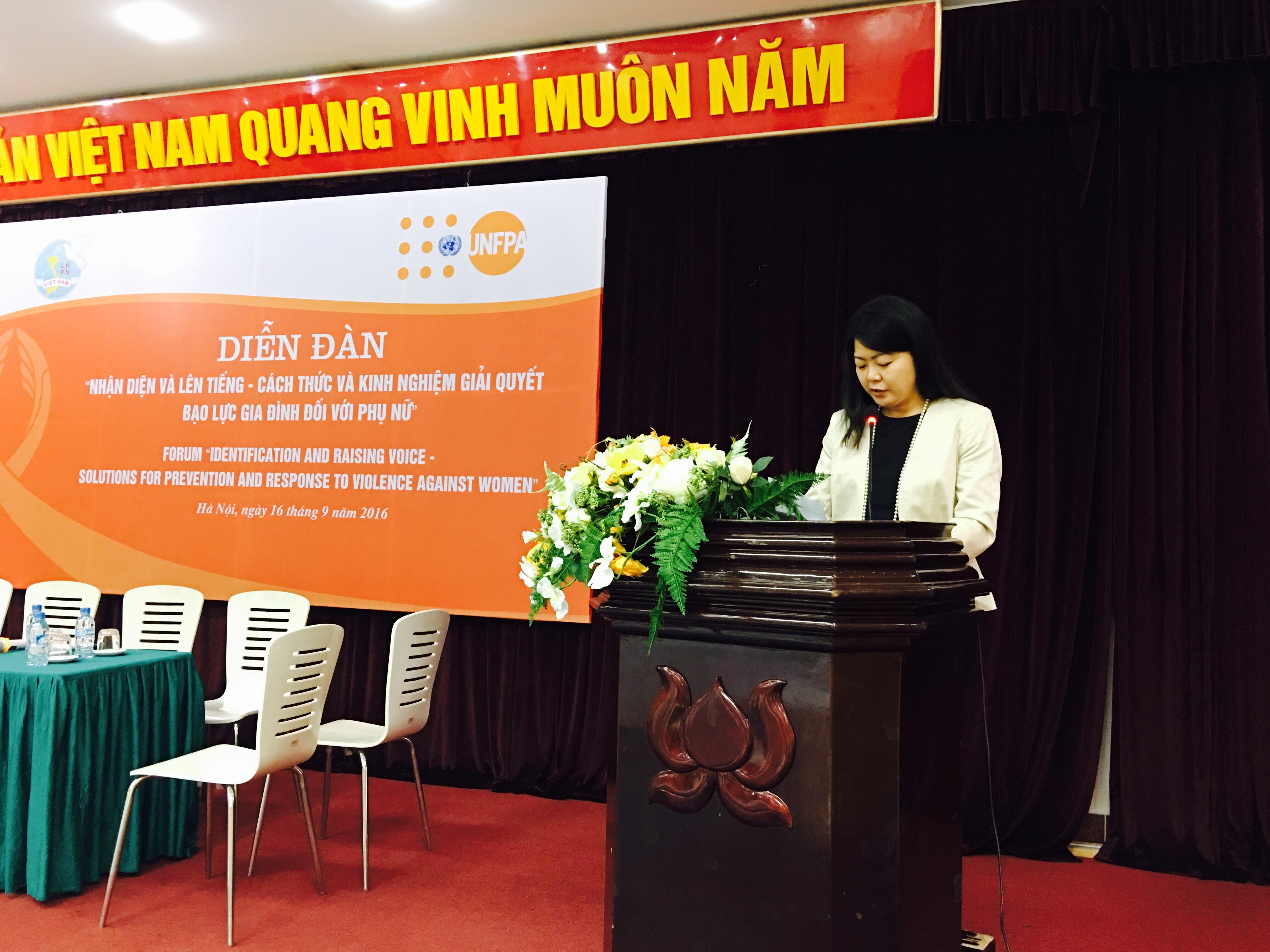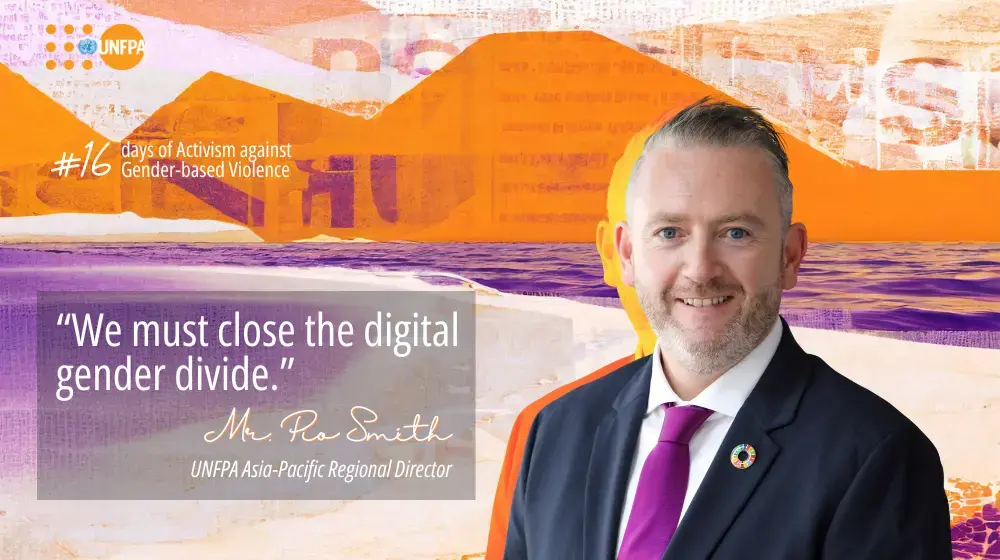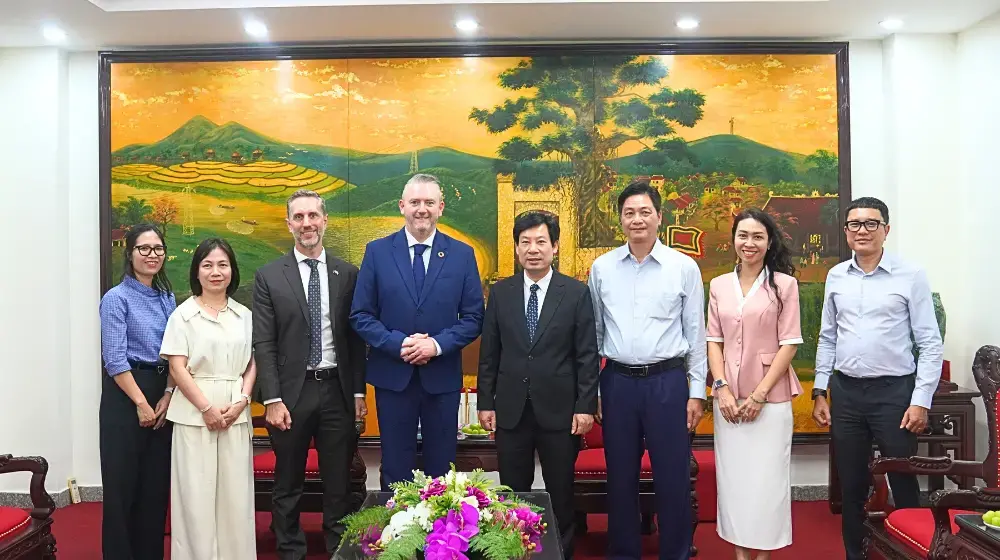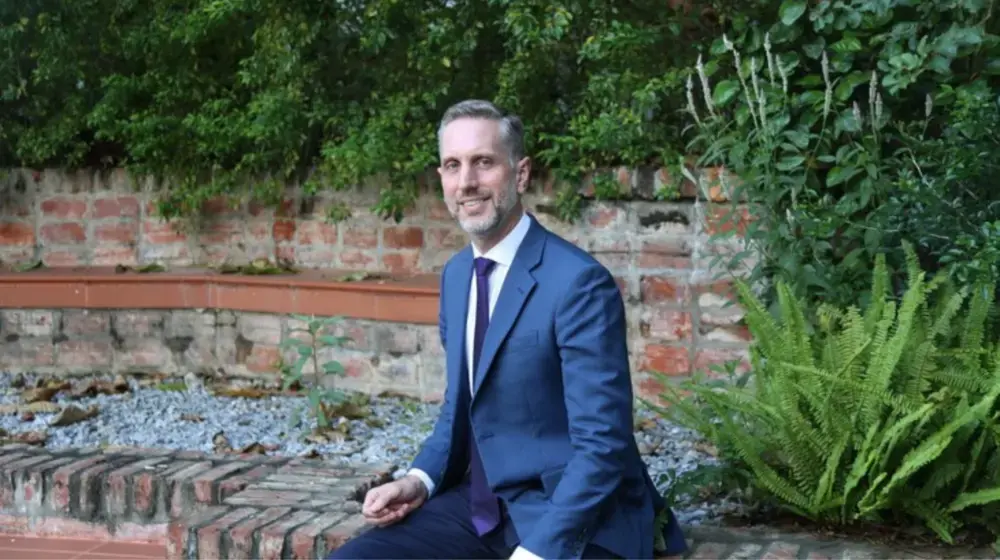Ms. Tran Thi Huong, Vice Chairperson of Viet Nam Women's Union;
Representatives from the line ministries and social organizations;
International development partners, UN Colleagues and media;
Ladies and gentlemen;
A very good morning to you all,
On behalf of the United Nations Population Fund (UNFPA) in Viet Nam, I am very honoured to be here at this forum "Identification and Raising Voice - Solutions for prevention and response to violence against women”. I would like to thank the Viet Nam Women's Union (WU) for organizing this exciting event.
I also very much value and greatly appreciate the partnership and commitment of the mass organizations, particularly the WU in addressing violence against women and girls in Viet Nam. The WU plays a very important role as the organization representing women’s rights, particularly for those who suffer from or are at risk of experiencing violence, in providing support to victims and raising awareness in the community, especially men’s awareness to prevent domestic violence.
Distinguished guests,
According to the National Survey on Domestic Violence conducted in 2010, 58% of ever-married women said that they had experienced at least one form of physical, sexual and emotional violence from someone close at some point in their lives.
Also, 87% of domestic violence victims did not seek help. Many were afraid of speaking up due to fear of stigma and discrimination, and also felt that there was a lack of accessible specialized services.
The data clearly tells us the government needs to step up to provide necessary services for the victims of gender-based violence. At the same time, it is crucial to create an environment where victims of violence do not have to feel shame or family pressure to keep quiet. All too often, women do not speak up and seek justice because they prioritize the image of “happy family” over her own rights and dignity. This clearly is not a real happy family, and this kind of situation must change.
Ladies and gentlemen,
I’d like to highlight a couple of recommendations to accelerate prevention and response to GBV.
First, it is essential to establish quality support services including health care, psychological support, safety, legal aids, and referral systems that are available and accessible to victims of sexual violence. To ensure these services are provided effectively, a well-coordinated multi-sectoral approach is absolutely necessary. For example, if a victim of sexual violence decided to seek help, a police officer, a health care provider or a social worker must be aware of different options and services available for the victim. They also need to be well trained to deal with the difficult circumstances, including psychological effect of violence. Coordination among sectors is essential to reduce the harmful impacts and prevent further injury, trauma and harm.
Second, it is critical to change mindset and attitude of people on gender-based violence, particularly sexual violence. Men need to recognize that women are equal to them, and respect women’s right to be safe wherever they are. Since men are often the decision makers in Vietnamese society, men can be partners and agents of change to stop gender-based violence. Positive male role models need to be identified and encouraged to advocate for social change.
Ladies and gentlemen,
The United Nations General Assembly adopted new and ambitious goals for sustainable development in September 2015, including a stand-alone goal on Gender Equality, and many gender-specific outputs. Breaking the cycle of violence against women and girls is a fundamental precondition for not only these gender-related goal and outputs, but also many other goals because without half of the population being free from violence, it would not be possible to have an equitable and prosperous society.
UNFPA has consistently advocated that violence against women and girls is a human rights violation and to stop gender-based violence must be a social development priority. UNFPA and its partner organizations are committed to supporting the Government and civil society organisations to advance the status of women and girls and promote gender equality. Today’s forum is part of such continuous efforts, and a build-up towards the first “national Action Month” on gender equality and GBV prevention and response in November. Let us all work towards a Viet Nam where no woman should have to live in fear, and where all women are treated with dignity and respect.
Thank you very much for your attention and I wish this event all the success. And I wish you all good health and happiness.





